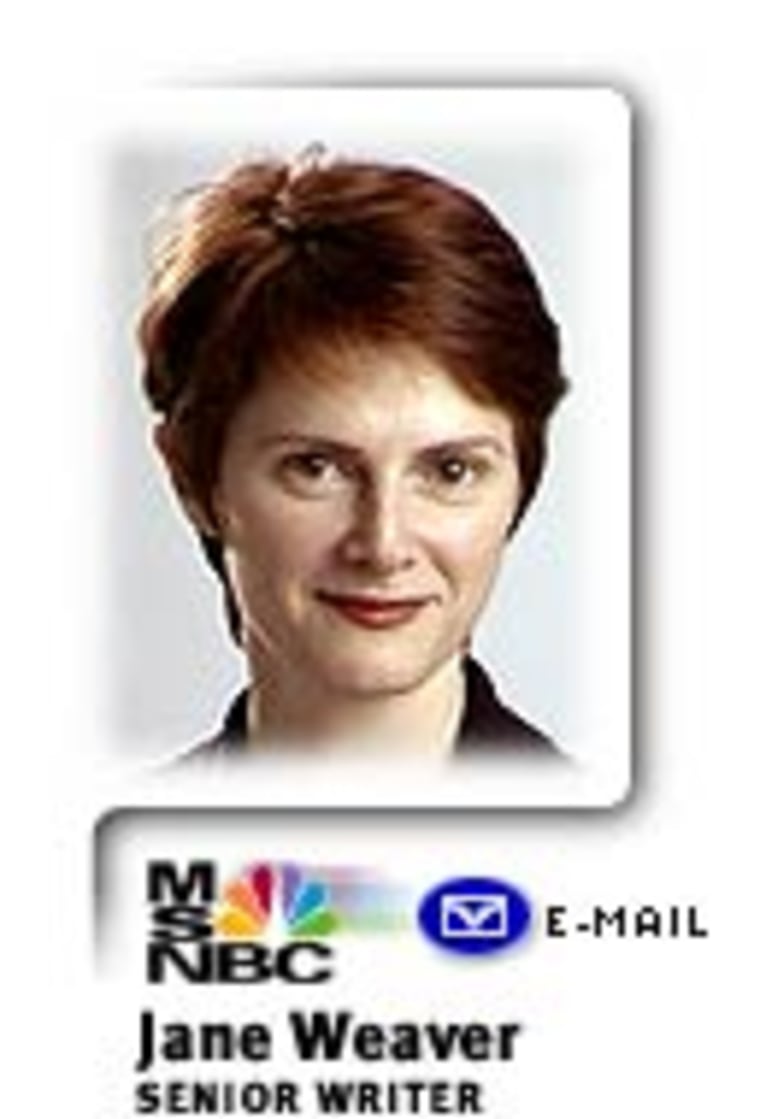Apple’s out-of-the-gate success with its digital music store was a wake-up call to record labels and Internet services that there is a market for legal, commercial downloads. However, a legitimate and unrestricted online music service for mass market consumers is still a long way off, digital music analysts say.

SINCE THE LAUNCH of Apple’s iTunes music store on April 28, talks have intensified between the major record labels, various leading Internet services and technology providers to offer paid download singles to online consumers, industry sources say.
Amazon is “actively engaged” with record companies and technology firms to figure out a way to deliver downloads to its customers, said Jeff Somers, Amazon’s group manager for music. Microsoft’s MSN is also working on a per-song downloading service, according to music industry sources.
(MSNBC is a Microsoft-NBC joint venture.)
AOL, which recently launched its MusicNet music service, is readying a digital singles offering for later this summer, company executives have said. Other sites such as personalized radio service MusicMatch plan to add song downloads by the fall.
MSN Entertainment general manager Hadi Partovi said the portal had no announcement planned, but added, “you should expect more from us.” MSN recently launched a subscription radio service “Radio Plus,” which Partovi called “the tip of the iceberg.”
Amazon’s Somers said the e-tail giant has been in ongoing discussions with record labels and technology companies about developing a viable digital download service.
“We’re excited about the opportunities here,” he said, noting that Amazon sold two Sarah McLachlan tracks as a promotion for a new album several years ago. “We intend to be a big player.”
After several years of unsuccessfully trying to convince music fans who download songs for free from Internet file-sharing networks to pay monthly subscription fees for access to digital music, suddenly it’s all about the single.
Apple exceeded record industry expectations, with 2 million songs downloaded in its first two weeks. Unlike the cumbersome restrictions of rival online music services, Apple’s offer is simple. Pay 99 cents and play songs from the five major labels on an iPod or share them on as many as 3 Macintosh computers.
Apple followed the launch with a blitz of TV commercials featuring people singing along to popular songs.
“Apple was a great wake-up call that if you properly market, there is a [business],” said Ted Cohen, vice president of digital development and distribution for EMI. “Post-Apple, a lot of partners are serious about moving the a la carte model to the front.”
How long the enthusiasm for the computer company’s music outlet will last is uncertain. The company doesn’t plan to release sales figures for week three of the iTunes service, a spokeswoman said. The high-profile commercial campaign will end in the next week or two, which could result in a slowdown.
But in the wake of the Apple surprise, record industry executives have become more reasonable and flexible in negotiations for rights to their artists’ music, insiders say.
EMI’s Cohen calls the excitement a “big halo effect,” predicting that a number of digital music storefronts could open in the next few months.
“It’s not unique to Apple; it can spread rapidly,” he said.
Others aren’t quite so sure.
Apple was able to skirt the copyright issues with the record labels and song publishers because its service is only available through Macintosh, a fraction of the computer market. When it comes to the dominant Microsoft-driven Windows market, the numerous record labels use different copyright standards. For example, some labels won’t allow their songs to be downloaded in the popular MP3 format.
“Despite all the hype, copy protection is still a hurdle,” said P.J. McNealy, analyst with GartnerG2. “There’s no mass market until there’s a standard for copy protection.”
Economic issues are still being worked out as well. Around 60-70 cents per download goes to the record label, with the transaction cost averaging around 10 cents per song.
It’s very clearly a new day for music, very exciting but creates a great deal of thrash in the marketplace,” said Amazon’s Somers. “The industry is trying to think through how to offer this particular product.”